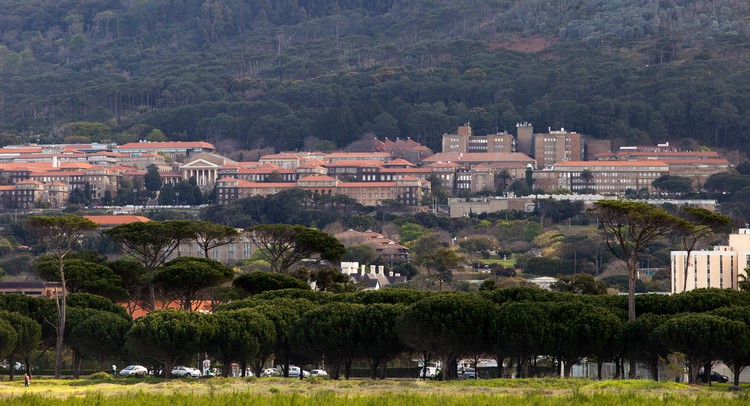UCT Employees Union threatens strike as negotiations deadlock
The trade union is the largest at the university, representing 1,200 staff
UCT Employees Union is planning to strike as negotiations deadlocked with university management at the CCMA on Thursday. Archive photo: Ashraf Hendricks
- Negotiations between the University of Cape Town’s management and its largest union deadlocked on Thursday in a matter before the CCMA.
- The union, which represents about 1,200 members, is planning to strike.
- At issue is the termination of the bargaining agreement between UCT and the union.
Conciliation negotiations between members of the University of Cape Town Employees Union and management reached a deadlock on Thursday.
It is the largest representative body at the university with about 1,200 members, according to the union. The union represents a wide range of earners (payment classes 2 to 13) and includes administrative workers, technical officers, as well as managers and executive directors. It is in effect the union for non-academic staff responsible for administration, technical work and management at the university.
According to the union, management is refusing to come to the table over several issues related to salary increases and is refusing to bargain with the union. The matter was heard at the Commission for Conciliation, Mediation and Arbitration (CCMA) on Thursday.
This is the second time in two weeks that the union has had to refer a matter to the CCMA.
In a statement on 23 January, the union expressed its concerns about management terminating its bargaining recognition agreement on 18 January. “This action by UCT, seeks to nullify the collective strength of staff to negotiate fair and reasonable pay increases and benefits,” the statement read.
The union’s Samuel Chetty told GroundUp that the university left them with no option but to go to the CCMA after management failed to negotiate with them.
On Thursday, UCT said that it had “extensive engagements” with all unions last year on establishing a single bargaining unit for all Professional, Administrative Support & Service (PASS) staff rather than “multiple arrangements”, according to UCT spokesperson Elijah Moholola. He said that “this move does not in any way seek to bring to an end its long-standing relationship with [the union]”.
“The university has similarly given notice to terminate its existing recognition agreements, as it relates only to the bargaining reforms, to other recognised unions representing PASS staff and all organisational rights are still in force,” said Moholola.
In addition to the two matters lodged at the CCMA this month, the union also had several cases before the CCMA in 2022. According to Chetty, this is “unprecedented” in the union’s history.
“The issue is that management has frustrated every effort the Employees’ Union has made for proposals and thwarted every proposal for negotiation in … labour matters,” said Chetty.
One of its cases before the CCMA was successfully negotiated in September last year. Technical inspectors had asked for overtime pay and compensation for using their vehicles for work at the university. In a statement, the union said, “An agreement has been reached to ensure that Technical Inspectors are fairly remunerated and compensated for their time in service of the employer. The agreement is backdated to 1 June 2022.”
In another case over salary increase negotiations, the CCMA ruled in favour of UCT. The university offered staff a 5% increase but there was a dispute about a once-off payment of R2,100.
Chetty said the union also is dealing with the lack of promotion opportunities for Professional, Administrative Support & Service staff, a matter which remains unresolved. This is despite other employees, such as academic staff and scientific officers, receiving promotions this year, Chetty said.
Meanwhile, members of the Academics’ Union at UCT are also set to down pens to strike for a higher salary increase. In a statement, this union said that UCT’s offer of 3% for 2023 was “insulting and derisory”.
Support independent journalism
Donate using Payfast

Next: Unrest erupts in Queenstown over blackouts
Previous: How to achieve a 100% matric pass rate in one of the country’s poorest areas
© 2023 GroundUp. This article is licensed under a Creative Commons Attribution-NoDerivatives 4.0 International License.
You may republish this article, so long as you credit the authors and GroundUp, and do not change the text. Please include a link back to the original article.
We put an invisible pixel in the article so that we can count traffic to republishers. All analytics tools are solely on our servers. We do not give our logs to any third party. Logs are deleted after two weeks. We do not use any IP address identifying information except to count regional traffic. We are solely interested in counting hits, not tracking users. If you republish, please do not delete the invisible pixel.

